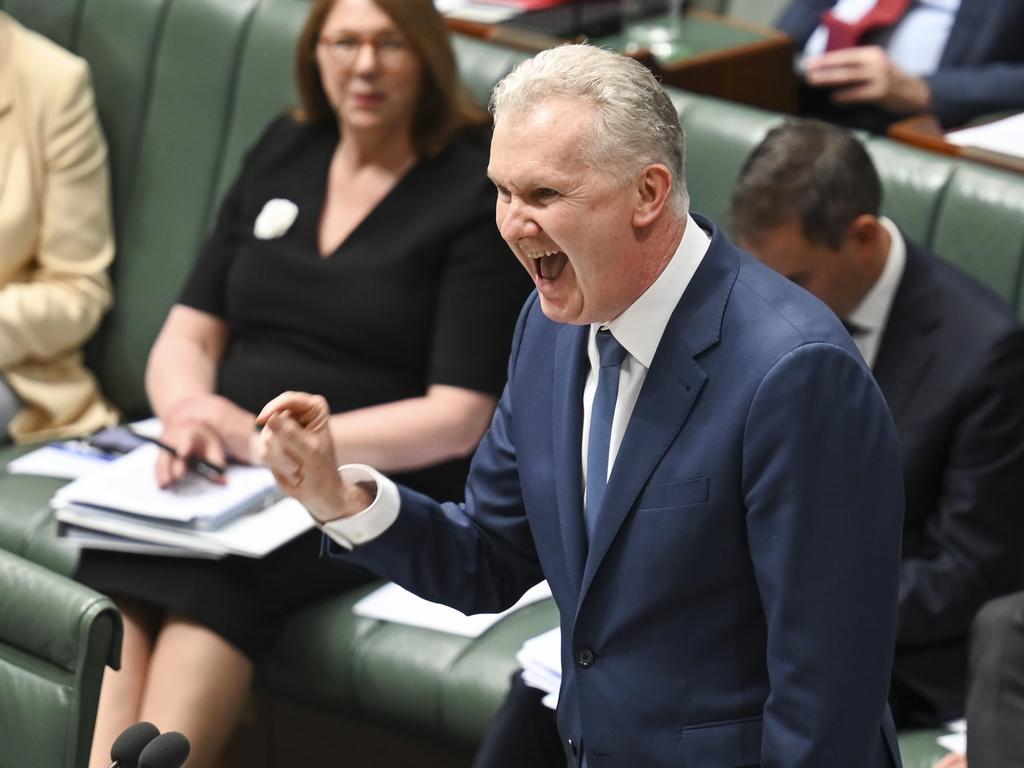It represents the biggest change in business capitalism for a generation and the way it was thrust on family businesses without debate will cause deep anger.
Most family businesses, including those employing fewer than 15 people, will be subject to compulsory union power in a similar way to that exercised in large corporate areas such as commercial building and the waterfront.
In my view, independent senators David Pocock and Jacqui Lambie double-crossed Australia’s family businesses in allowing the attack on family business legislation to be passed suddenly on December 6 when people had been told these and other issues were part of a Senate inquiry and would be debated early next year.
In particular Pocock, who set himself up as a true independent and an advocate for family business, turned out to be simply a Trojan horse.
Among the hardest hit will be rising female entrepreneurs. Many will need to change the refreshingly flexible way they do business unless they become sole traders.
The legislation provides that for any family business that employs people (starting with only one person), and has in its ranks a union member, the union will have the power to declare that person a delegate.
Fair Work will later determine the obligations of these union delegates, but almost certainly those obligations will include not only remuneration matters but the way the family business is conducted.
Family businesses will be split into two categories – those with 15 or more employees, and those with fewer. Under the legislation, any employee who is a member of a union can be appointed by that union to automatically become a delegate, and multiple delegates can be appointed to the same overall business.
For instance, every chain store within a family group (like IGA supermarkets) could have a union delegate appointed. For businesses spread across Australia, the delegates could be appointed on a geographical basis.
From July 1 next year, all enterprise agreements and awards and similar arrangements will be deemed to have been amended to have provisions entrenched that will regulate the rights, duties and obligations of union delegates. None of the proposed amendments have been published.

Under the legislation, employers are obligated to allow a reasonable time for the delegates to undertake their duties and for them to be trained.
Employers must not restrict in any way the delegate in carrying out his or her duties. Delegates must be given time not only to carry out their duties but to be trained off site on how to carry out those duties.
For businesses employing 15 people, the families will be required to pay reasonable amounts for off-site training where their “union delegate” employees will be trained by senior union officials – almost certainly including the CFMEU – on how to apply hard-line union tactics to family enterprises.
In one small concession, where a family business has fewer than 15 employees the training of a union delegate can be undertaken taken on site.
From next July, family businesses will be subject to the horrors that plague larger enterprises. For example if a workplace union delegate alleges that a business has breached its obligations, there is a reverse onus of proof imposed on the business (that is, guilty until proven innocent).
Over time the unions will ensure that there are delegates in every family business because even if a family business has no union members, it will not be difficult for a union to find an existing employee who is acceptable.
The horror of this process is that the employer can have no influence on what happens. In many cases only a few, if any, employees may want the employer to engage with union delegates.
Successful family enterprises regardless of size place huge emphasis on their employer/employee relationships and larger family enterprises invest heavily in the family relationship to bring the operation together. In most enterprises, over time that process will be smashed.
Perhaps the greatest disaster will occur in small family operations employing, say, 20 people, that simply don’t have the size to suddenly manage a set of union rules that govern the way they conduct their business. Australian productivity will fall and in some areas prices will rise sharply.
One the first targets of the ALP-Greens-Pocock legislation will be housing, where the current rules enable dwellings of less than three stories to be built using efficient work practices and labour rates that result in far lower costs than commercial building. The CFMEU will almost certainly demand commercial rules apply to housing, substantially boosting the cost of building a dwelling.
According to the small business ombudsman, there are about 2.5 million family businesses in Australia but just over 1.5 million are sole traders and do not employ people. Being a sole trade will now be much more attractive.
Successful family businesses thrive on flexibility, and owners and employees enjoy working together. Many families will throw in the towel.
In some cases like IGA, family flexibility enables the enterprises to compete with giants Coles and Woolworths. That flexibility is now in danger, given that most IGA stores employ more than 15 people so at least one person in each supermarket will need to be sent off site for union training.
Footnote: The ATO had this to say on Monday’s gold scandal comment: “It is incorrect to estimate the cost to the ATO of gold scheme litigation at $50m. These matters are a very small component of the ATO’s litigated disputes. To place this in context, the ATO’s entire external legal expenditure in the 2022-23 financial year was $62,255,955.”
My comment: The actual ATO legal services expenditure in 2022-23, including internal expenditure was actually $103m. My $50m estimate was over seven years, not one year, and included internal legal services.






A section has been included in the federal government’s new industrial relations legislation to enable an unprecedented attack on the more than 900,000 family businesses that employ people.